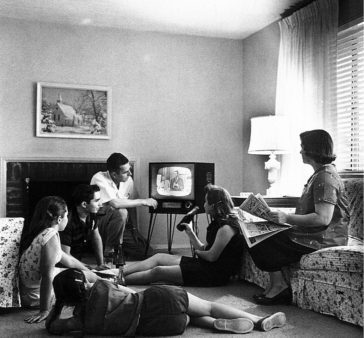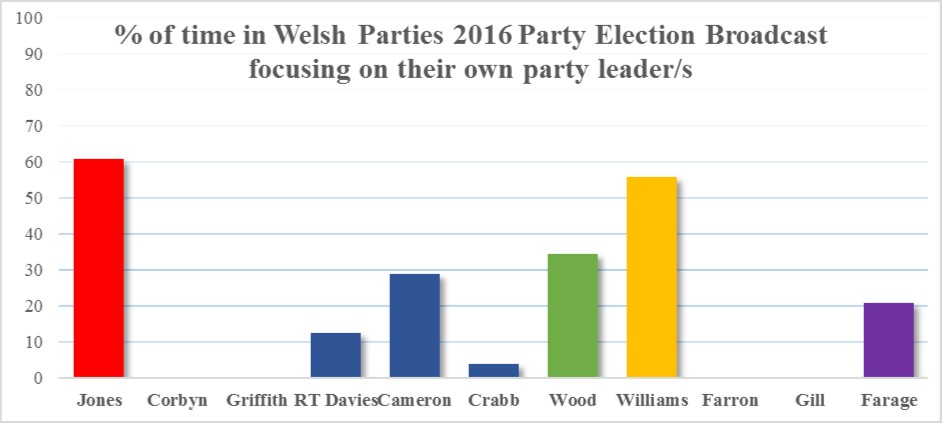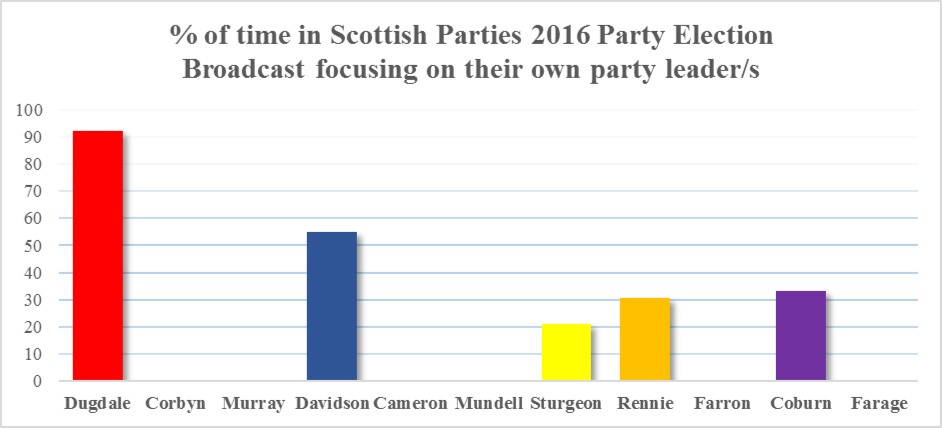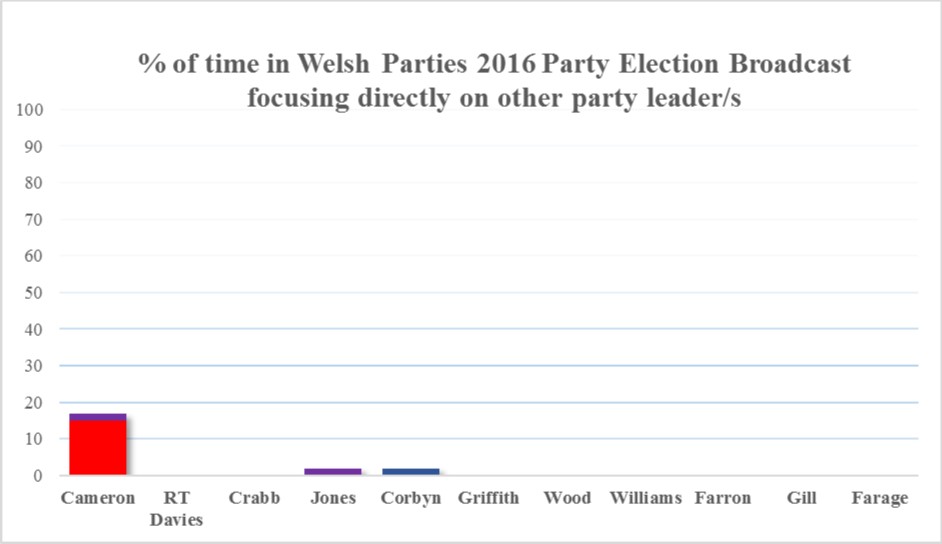‘Video Killed the Radio Star?’ Devolution, Leaders & PPBs
16 October 2016
With Party Political Broadcasts celebrating their 65th year on our screens this week, Aled Morgan Hughes takes a look at their history and contemporary role in devolved Wales and Scotland…
“This is a party political broadcast from the ___ party”.
Few sentences on television are greeted with the same recognition and, quite possibly, dread, as the introduction of a Party Political Broadcast. A British institution, causing spasms of channel hopping across the country, Party Political Broadcasts (PPBs) celebrate their 65th year on television this week.
Battle of the airwaves
First introduced during the 1951 General Election campaign, the inaugural PPB, appearing on television on the 15th of October, saw an elderly Lord Hebert Samuel representing the Liberal party. It proved to be a slightly eventful affair; reading directly from his notes, Samuel ran over the allocated time, and was tragically cut-off in mid-sentence by the producer. Oops.
It’s fair to say PPBs have however come a long way since the teething troubles experienced by Lord Samuel. From the cartoons and graphics included in the innovative 1959 Labour broadcast directed by Tony Benn, to the terrific all-signing, all-dancing Green Party broadcast from the recent 2015 General Election, PPBs have become yet another battlefield which sees the parties go head to head to try and gain the electoral upper hand.
Academic Anthony Mughan argues this change within the nature of the political broadcasts over the past decades echo a wider trend of political change within British society. As electoral volatility and partisan dealignment increased since the 1960s a shift in the purpose of PPBs was witnessed. Morphing from their traditional role of rallying the party faithful to get out and vote, PPBs are now seen to put a greater influence on attempting to ‘sell’ the party to ‘swing’ and undecided voters.
Follow the Leader?
One of the main features associated with the transformation of PPBs is the notable change within the role of the party leader, seeing them become much more prominent in their party’s electoral broadcasts since the 1980s.
One could suggest such leader prominence was ushered in thanks to the infamous 1987 Labour broadcast, ‘Kinnock: The Movie’. Directed by Oscar-winner Hugh Hudson of ‘Chariots of Fire’ fame, the 10 minute- long feature would revolutionize the PPB forever. Opening to the scene of Neil Kinnock and wife, Glenys frolicking their way down a coastal path to chords of Beethoven’s ‘Ode to Joy’, it truly is a fascinating broadcast- completely personalized around Kinnock. Featuring interviews with his Uncle Bill and Aunt Sadie, as well as Labour stalwarts, Callaghan and Castle, as the final scene of Westminster with ‘KINNOCK’ embedded in front of it suggests, the broadcast is nothing less than presidential. This wasn’t about Labour as a party, it was all about Kinnock.
With ‘Kinnock: The Movie’ setting the bar in 1987, the 1990s would see a continuation of the leader-centric rhetoric within the PPBs. In 1992, directed this time by Oscar winner John Schlesinger, the Tories fielded a broadcast focusing on John Major’s rise from the streets of South London to the Conservative leadership. 1997 saw a similar theme emerge, this time with Labour’s PPB revolving around Tony Blair.
Since the birth of devolution in Scotland and Wales following the 1997 referenda, Party Political Broadcasts have remained an integral aspect of devolved election campaigns in both countries.
PPBs & 2016 Devolved Elections
Due to the balanced legal restrictions that accompany them, PPBs prove to be an effective (and underused) instrument when it comes to interpreting party election strategies- offering not only an opportunity to compare and contrast between parties from the same country, but also further afield.
With the question of devolved party leadership proving at times to be a fairly contentious issue, especially within the statewide parties, PPBs can provide an interesting insight not only into how party leaders are used in devolved election campaigns, but also which leaders are used.
Focusing on the May 2016 devolved election campaigns, I concentrated on analysing the final party political broadcast (or ‘Party Election Broadcast’, to be correct) for each of the Scottish and Welsh Labour, Conservative, Liberal Democrat and UKIP parties, as well as Plaid Cymru and the SNP.
Watching the broadcasts, I analysed the percentage of the time in the PEBs that was focused upon the party leader- either mentioning them, including them talking, or just generally showing them. In regards to the statewide parties, as well as their devolved leader, I also noted any mentions or appearances by their British party leader, as well as the Conservative Secretary of State for Wales/Scotland, and their shadow counterparts in the Labour Party.

A glance at the results show that party leaders play a central part in some way, shape or form in all of the parties’ election broadcasts in Wales (above) and Scotland (below).
This leader prominence varies from party to party- from the highly personalized Labour appeals of Carwyn Jones and Kezia Dugdale, to the briefer appearances of Leanne Wood and Nicola Sturgeon. Westminster Liberal Democrat leader, Tim Farron is absent from the federal Lib Dem PEBs, focusing rather on Kirsty Williams and Willie Rennie, whilst unsurprisingly perhaps, Jeremy Corbyn misses out on a cameo in both the Scottish and Welsh Labour broadcasts.

Despite these similarities, it’s also possible to trace notable differences between the Scottish and Welsh experiences. Interestingly, these can be seen at their most obvious through the Conservative and UKIP approaches to their PEBs.
Whilst Scotland sees the devolved leaders of Ruth Davidson and ever-entertaining David Coburn play a prominent role, it’s the Westminster leaders that rule the roost in Wales. Welsh UKIP Leader, Nathan Gill is completely absent from the UKIP broadcast, dominated rather by Nigel Farage. Meanwhile, despite a brief appearance from devolved leader- and famed breakfast lover- Andrew RT Davies in the Welsh Conservative broadcast, notably it’s British Prime Minister, David Cameron that plays the central role- whilst even the Welsh Secretary of State, Stephen Crabb manages a brief appearance.
Such a contrast between Wales and Scotland can also be seen when comparing the focus placed directly upon rival party leader’s within a party’s PEB.
As shown below, despite being a devolved election, British Prime Minister David Cameron is significantly targeted in the Welsh Labour PEB, with around 15% of the entire broadcast focusing on the Conservative leader. Meanwhile, the Welsh Conservatives briefly strike-back, mentioning Labour’s Westminster leader, Jeremy Corbyn, and his threat to “British national security”. Notably, Carwyn Jones- Welsh Labour leader, and longstanding First Minister, is only briefly mentioned once in the rival party broadcasts- criticized by Nigel Farage in the UKIP broadcast.

In Scotland, on the other hand, such negative portrayals of rival party leaders remain completely absent, with neither opposing Westminster or Holyrood leaders directly mentioned or featured in any of the PEBs.
Hail to the Chief?
Whilst it would be possible to interpret the graphs further, combining them with leader ratings or public familiarity data, this basic analysis displays two simple trends. First of all, it’s fair to suggest the British trend of leader-centred electoral campaigning is replicated within the devolved-level party broadcasts.
Secondly, despite the similarities between the two countries, as always it’s the differences between Scotland and Wales that draws the eye. Whilst the Scottish PEBs explicitly focus on the Scottish leaders and Holyrood political sphere, in Wales once again- as reflected by the presence of David Cameron and Nigel Farage- even in within the context of a devolved election, the fragments of Westminster politics’ shadow are undeniably obvious.
When it comes to Party Political Broadcasts, it seems that the Scottish and Welsh parties remain on slightly different channels.
- December 2025
- November 2025
- October 2025
- September 2025
- June 2025
- May 2025
- March 2025
- February 2025
- December 2024
- October 2024
- September 2024
- July 2024
- June 2024
- December 2023
- November 2023
- August 2023
- February 2023
- December 2022
- November 2022
- September 2022
- July 2022
- April 2022
- March 2022
- January 2022
- October 2021
- July 2021
- May 2021
- March 2021
- January 2021
- November 2020
- October 2020
- August 2020
- July 2020
- June 2020
- May 2020
- April 2020
- March 2020
- October 2019
- September 2019
- June 2019
- April 2019
- March 2019
- February 2019
- December 2018
- October 2018
- July 2018
- June 2018
- April 2018
- December 2017
- October 2017
- July 2017
- June 2017
- May 2017
- April 2017
- March 2017
- February 2017
- January 2017
- December 2016
- November 2016
- October 2016
- September 2016
- Bevan and Wales
- Big Data
- Brexit
- British Politics
- Constitution
- Covid-19
- Devolution
- Elections
- EU
- Finance
- Gender
- History
- Housing
- Introduction
- Justice
- Labour Party
- Law
- Local Government
- Media
- National Assembly
- Plaid Cymru
- Prisons
- Reform UK
- Rugby
- Senedd
- Theory
- Uncategorized
- Welsh Conservatives
- Welsh Election 2016
- Welsh Elections